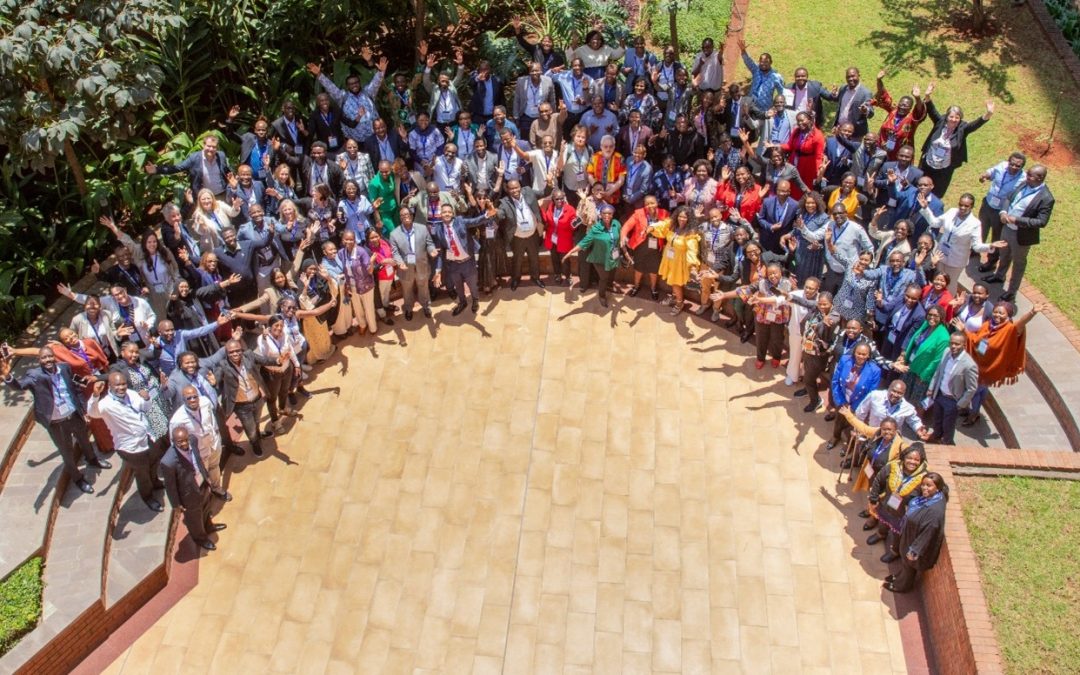By Temitayo Akinyemi
The Digital Media Africa Conference 2024, held in Nairobi, Kenya, from September 17-19, gathered media professionals, tech innovators, and regulators to discuss the future of African media. Hosted by WAN-IFRA, the conference focused on key themes such as artificial intelligence (AI), content monetization, alternative revenue models, and media regulation. NAMIP cohort members actively participated, bringing their insights to critical discussions and exploring innovative ideas to address the sector’s evolving challenges.
The Role of AI in Journalism
Day 1 of the conference spotlighted AI’s transformative potential for journalism, emphasizing its role in improving newsroom efficiency and enhancing transparency. Discussions ranged from ethical concerns to the integration of AI tools that streamline content creation and data-driven reporting.
NAMIP members joined panels addressing how AI could reshape editorial processes without compromising journalistic integrity. Muyiwa Matuluko’s presentation on AI in Nigeria highlighted the importance of balancing automation with accountability. His insights reinforced Africa’s potential to lead in AI-driven media innovations. Side discussions also explored how AI tools like AGI could enhance fairness in reporting and open new revenue opportunities for newsrooms.
Challenges in Media Regulation
Day 2 turned the focus to media regulation in a rapidly digitizing world. NAMIP’s Program Director, Deji Adekunle, joined a roundtable examining the complexities of regulating media in a globalized, tech-driven environment. Key topics included the role of independent media councils, the influence of tech giants like Google and Meta, and the importance of fostering an enabling regulatory framework for media in Africa.
Participants emphasized the need for balanced approaches that address digital challenges while protecting press freedom and encouraging innovation.
Storytelling as a Journalistic Tool
Storytelling emerged as a crucial theme during the conference, with sessions exploring its ability to engage audiences and tackle societal issues. Presenters highlighted narrative techniques that bring complex topics to life, helping media organizations connect with readers in meaningful ways.
NAMIP members contributed examples from their own platforms, showcasing how storytelling can drive deeper audience engagement and support impactful journalism.
Rethinking Revenue Models
The conference also delved into strategies for ensuring financial sustainability in media. Frank Aigbogun of Business Day shared his organization’s success with paywalls and event-driven revenue streams. His decision to temporarily lift the paywall during elections to boost engagement sparked conversations on flexible revenue strategies tailored to Africa’s diverse audiences.
Discussions also explored emerging trends, such as creating reader-focused products like newsletters and video content, to capture shifting audience preferences. NAMIP members joined conversations about adapting these models to strengthen their organizations’ financial resilience.
Collaboration and Innovation
The Digital Media Africa Conference 2024 provided a valuable platform for collaboration, allowing NAMIP cohort members to engage with industry leaders, tech innovators, and regulators. From AI integration to content monetization, the event highlighted the potential for innovation to address pressing challenges in African media.
NAMIP’s active participation reinforced its commitment to fostering sustainable, forward-thinking solutions, setting the stage for continued growth and impact across the continent.

